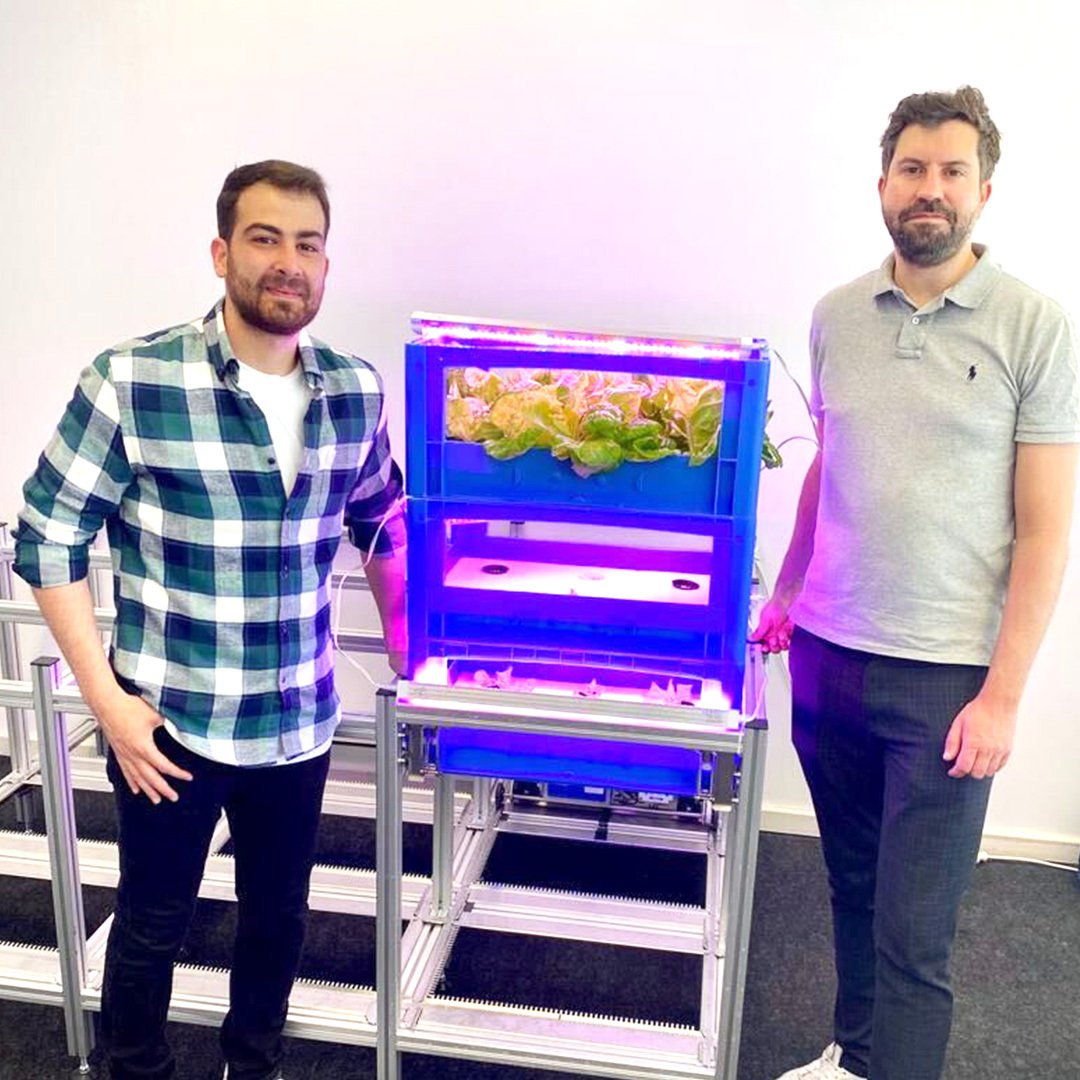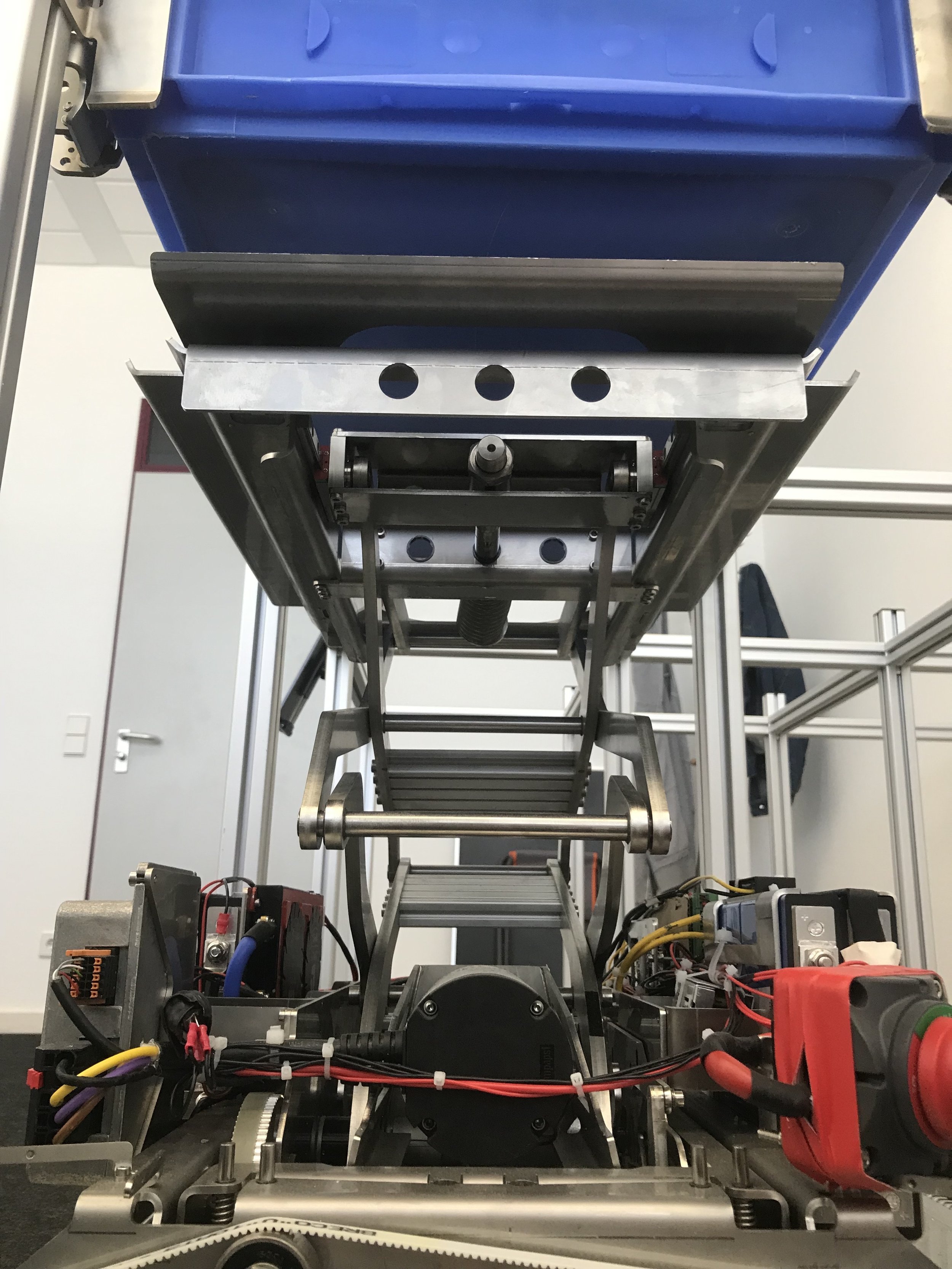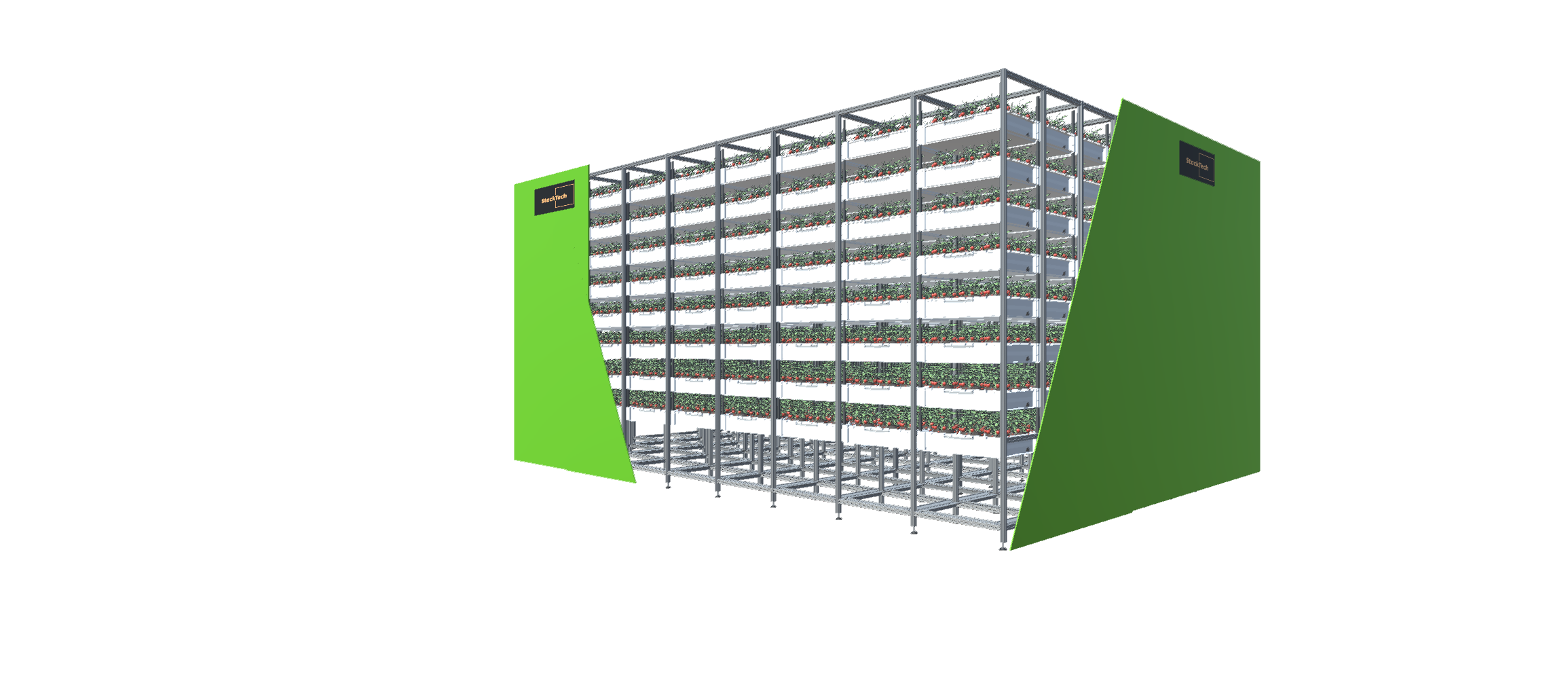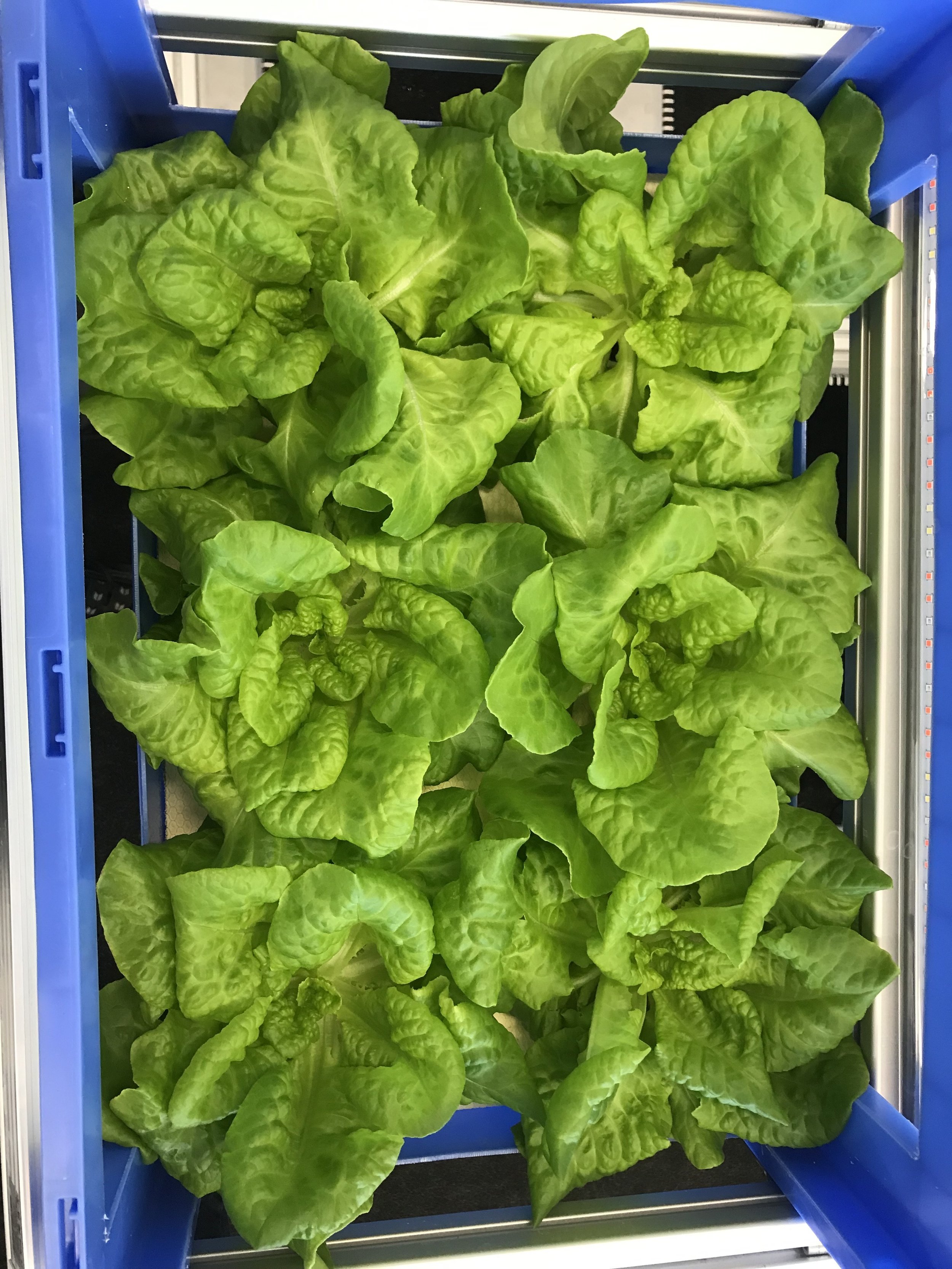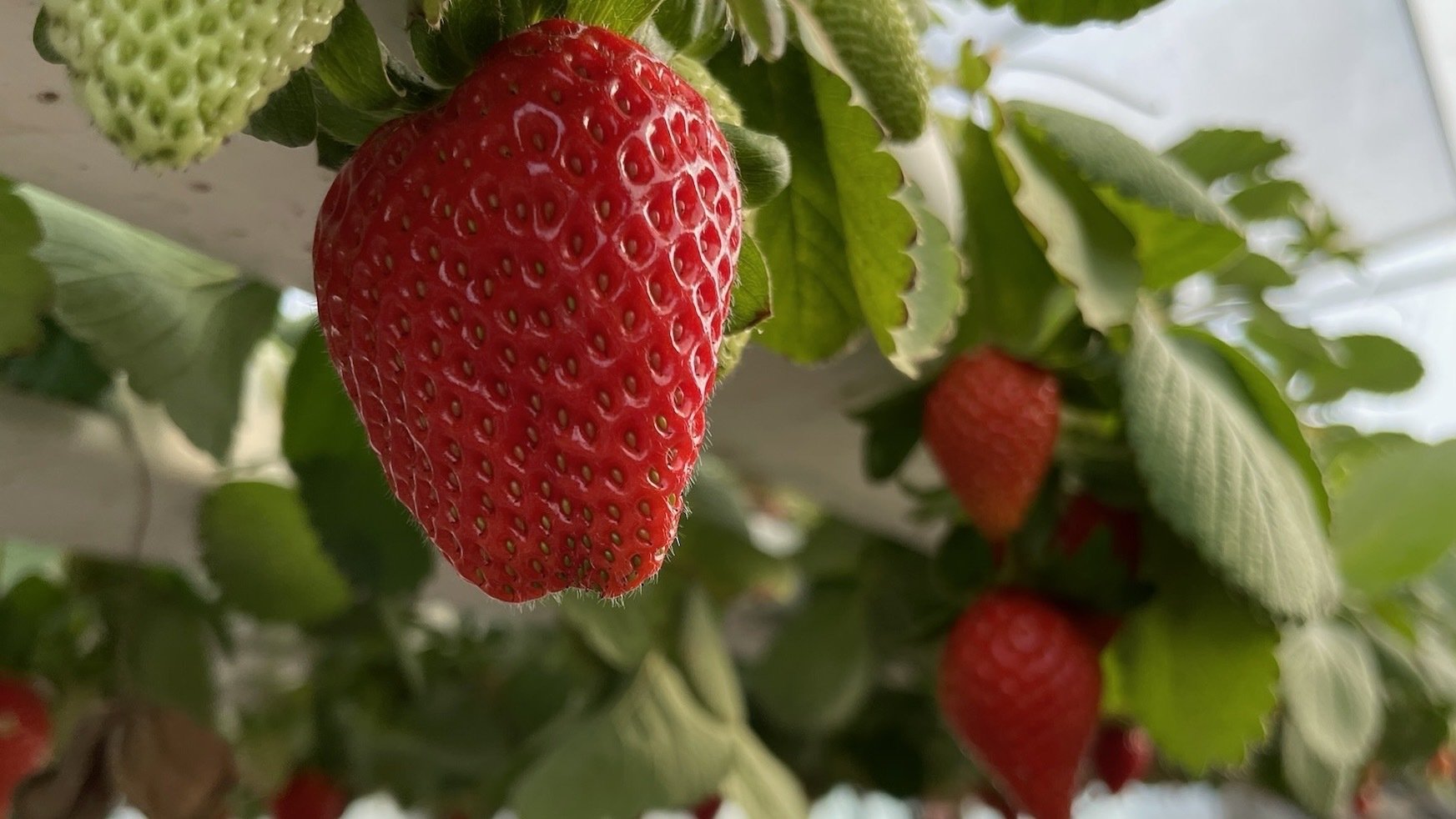AI-based quality control for vertical farming
Gestalt Robotics and Stack Tech Farm enter into a collaboration. Berlin-based startup Stack Tech Farm has developed a mobile robot solution for vertical farming. With the support of Gestalt Robotics, the company now wants to prepare another important evolutionary step of their technology.
AI-based quality control in the cultivation of plants
The goal is to precisely monitor the cultivation of plants from seed to harvest, and to enable reliable and cost effective quality control for customers at single crop level. In the future, AI-based methods will be used to determine the condition and quality of the plants via a camera system installed at a single station, where robots bring the trays autonomously to it. For the realisation of the technology, the company wants to draw on the know-how of Gestalt Robotics.
Vertical farming with mobile robots
Unlike conventional vertical farming, Stack Tech Farm uses mobile robots to flexibly move the trays in which the plants are grown. The trays are stacked closely on top of and next to each other to form a grid that uses all the available space in the room. The grid is divided into stacks that are either light or dark and individually controlled.
Mobile robots running under the rack, are able to autonomously store and retrieve the compartments. Intelligent, AI-assisted orchestration is responsible for sequentially distributing the bins according to the type, demand and age of the crop. This flexibility allows for a 2-3x increase in production, 75% labour savings, 30-50% less infrastructure and energy requirements, and 40% lower costs in producing the highest quality crops compared to traditional vertical farming. The solution requires no crop handling and is hygienic. Stack Tech Farm will initially specialise in leafy vegetables and strawberry plants.
Vertical farming is only just beginning in Germany
The cultivation of vegetables and fruit on a few square metres, one above the other in several storeys is called "vertical farming". This new approach to agriculture is becoming increasingly important against the backdrop of food security, resource efficiency and environmental sustainability. Vertical farms promise to make better use of existing land, reduce dependence on pesticides, save water and strengthen locally grown products. In Germany, however, this trend is still in its infancy compared to the USA, the Arab region and Asia. Business Inside estimates the global market for vertical farming at 4.16 billion USD in 2022.

